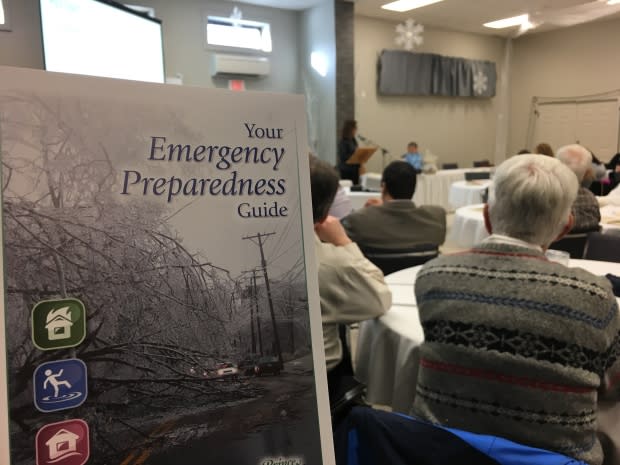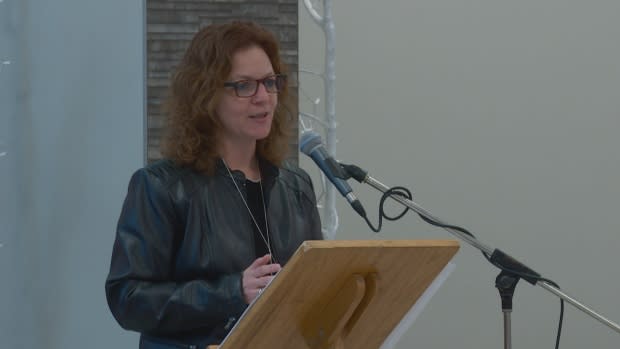P.E.I. municipalities learn about preparing for emergencies
As Islanders prepare for a winter storm, municipalities on P.E.I. are looking at ways to be ready to help people when extreme weather or other emergencies hit.
Many communities already have emergency plans, but under the Municipal Government Act, which came into effect late in 2017, there is a requirement for all municipalities on the Island to have an emergency management program in place.
Municipalities were given three years to put a plan in place.
Tanya Mullally, the provincial emergency management co-ordinator, said its important for all communities to be ready and to know what plan to follow when an emergency happens.
More extreme weather events
Mullally shared her insights into emergency planning during the Federation of P.E.I. Municipalities semi-annual meeting this weekend.
She said with more frequent extreme weather events, the need for communities to be prepared is more important than ever.

"When I was growing up as a child I don't recall ever seeing a hurricane, but now we're seeing hurricanes and tropical storms impacting Atlantic Canada almost on an annual basis, and that's quite significant."
Mullally said emergency plans should include things like where a warming shelter could be opened, how to get messages out to residents and who is on call to help. It's also important for communities to train staff and volunteers so they know how to execute the plan.
Small communities working together
In order to more easily meet the new requirements, some small communities have decided to pool their resources and work together, such as the communities of Abram-Village and Wellington, with populations of about 300 and 400, respectively.
"For a small community, it's a big undertaking," said Abram-Village Mayor Roger Gallant. "So that's why we kind of brought Wellington on board, and try to work together and put this in conjunction with Wellington, to put something in place for the whole region."

Mullally says she's heard of several communities that have decided to do the same thing — and it's a system she supports, especially if they are already in the same fire district.
She acknowledges that smaller communities may face some challenges when responding to emergencies, but said they also have certain advantages.
"If you're in a small community, and you know the community really well, you probably know the five people that are going to need the help the quickest," she said.
For larger centres like Charlottetown, there's the potential for the need for a much larger response.
"[With] 40,000 people, if they're all out of power, that then becomes a huge problem of how do we provide support to everybody. So you know there's going to be differences and challenges for every size of community," Mullally said.
More P.E.I. news

